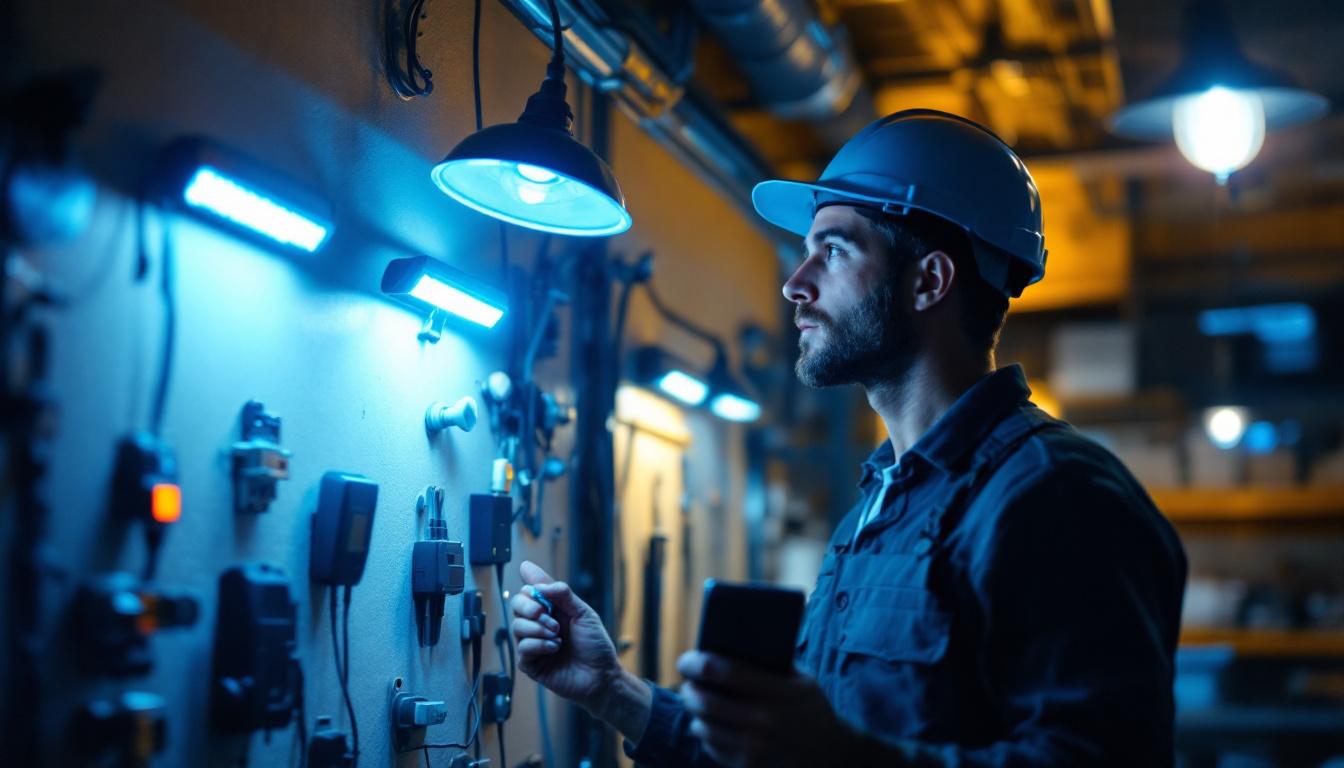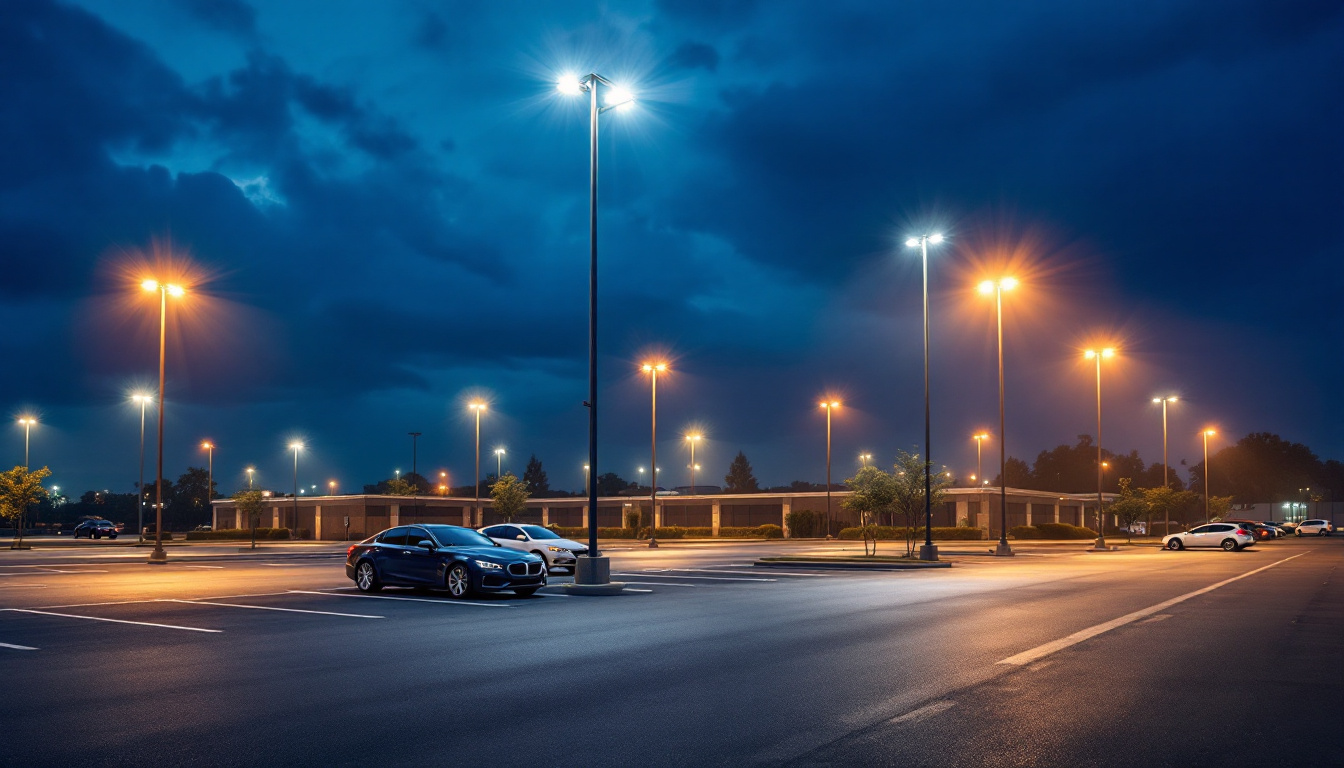
In the ever-evolving world of lighting design and installation, staying ahead of the curve is essential for lighting contractors. Whether working on residential projects or large commercial installations, understanding the nuances of lighting supply can significantly impact the quality of work and client satisfaction. Here are some quick tips that can help lighting contractors streamline their operations and enhance their service offerings.
Before diving into specific tips, it’s crucial for contractors to have a solid grasp of the fundamental aspects of lighting supply. This knowledge not only aids in making informed decisions but also ensures that projects are completed efficiently. A comprehensive understanding of lighting supply can also enhance communication with clients, allowing contractors to explain the benefits and limitations of different lighting options clearly. This transparency builds trust and helps clients feel more involved in the decision-making process, ultimately leading to greater satisfaction with the final results.
Familiarity with various types of lighting fixtures is essential. From recessed lights to pendant fixtures, understanding the purpose and application of each type can help in recommending the right solutions to clients. For instance, recessed lights are ideal for providing ambient lighting, while pendant lights can serve as focal points in a room. Moreover, wall sconces can add a touch of elegance and are often used to highlight artwork or architectural features, enhancing the overall aesthetic of a space.
Additionally, contractors should be aware of the latest trends in energy-efficient lighting, such as LED technology. LEDs not only consume less energy but also have a longer lifespan, making them a cost-effective choice for both contractors and clients. Furthermore, the versatility of LED fixtures allows for a wide range of applications, from task lighting in kitchens to decorative lighting in living rooms. Understanding color temperature and how it affects the mood of a space can also help contractors guide their clients in selecting the perfect lighting solutions that complement their interior design.
Using high-quality lighting supplies can make a significant difference in the outcome of a project. Low-quality materials may save money upfront but can lead to issues such as flickering lights, short circuits, or even safety hazards. Investing in reputable brands and products can ensure durability and reliability, ultimately enhancing the contractor’s reputation. Furthermore, high-quality lighting supplies often come with warranties and customer support, providing an extra layer of security for both the contractor and the client.
Moreover, quality supplies can improve the overall efficiency of a lighting system. For instance, using dimmable LED fixtures not only allows for better control of lighting levels but also contributes to energy savings over time. Contractors should also consider the importance of proper installation techniques, as even the best fixtures can underperform if not installed correctly. By prioritizing quality in both products and installation, contractors can deliver superior lighting solutions that meet or exceed client expectations, fostering long-term relationships and repeat business.
Managing a lighting project involves more than just installation. Effective project management can streamline processes, reduce costs, and improve client satisfaction. It requires a blend of technical expertise, organizational skills, and interpersonal communication to ensure that every aspect of the project is executed seamlessly.
Proper planning is the cornerstone of any successful lighting project. Contractors should create a detailed project timeline that outlines each phase of the installation process. This not only helps in managing time effectively but also keeps clients informed about progress. By breaking down the project into manageable tasks, teams can allocate resources more efficiently and anticipate any potential bottlenecks that may arise.
Scheduling regular check-ins with the team can help address any potential issues before they escalate. Moreover, it allows for adjustments to be made in real-time, ensuring that the project stays on track. These check-ins can also serve as a platform for team members to share insights and suggestions, fostering a collaborative environment that can lead to innovative solutions and improvements in the project workflow.
Clear communication with clients and team members is vital for a successful project. Contractors should establish open lines of communication to discuss project expectations, timelines, and any changes that may arise. Regular updates can help manage client expectations and foster a sense of trust. Additionally, providing clients with a point of contact for any questions or concerns can enhance their confidence in the project’s progress and the team’s capabilities.
Utilizing project management software can also enhance communication. These tools allow for easy sharing of important documents, schedules, and updates, ensuring everyone is on the same page. Furthermore, incorporating features such as task assignments and deadline reminders can help keep the team accountable and focused on their responsibilities. By leveraging technology, contractors can create a more organized and transparent workflow, ultimately leading to a more successful project outcome.
Safety should always be a top priority for lighting contractors. Ensuring a safe work environment not only protects the team but also minimizes liability risks.
Contractors must be well-versed in local electrical codes and safety standards. Compliance with these regulations is not only a legal requirement but also essential for ensuring the safety of both workers and clients. Regular training sessions can help keep the team updated on safety practices and protocols.
Moreover, using the right personal protective equipment (PPE) is crucial. Hard hats, gloves, and safety goggles should be standard gear for all team members on-site.
Before commencing any project, conducting a thorough safety inspection of the worksite is essential. This includes identifying potential hazards, ensuring proper equipment is available, and verifying that all team members understand safety procedures. Regular safety meetings can reinforce the importance of maintaining a safe work environment.
Educating clients about lighting options and installation processes can enhance their overall experience and satisfaction. Engaged clients are more likely to appreciate the value of the contractor’s work.
When presenting proposals, contractors should include detailed descriptions of the recommended lighting solutions, including benefits and potential drawbacks. This transparency can help clients make informed decisions and feel more confident in their choices.
Additionally, providing visual aids, such as diagrams or renderings, can help clients better understand the proposed lighting design and its impact on their space.
Once a project is completed, contractors should offer clients maintenance tips to ensure the longevity of their lighting systems. This can include advice on bulb replacement, cleaning fixtures, and scheduling regular inspections. By providing this information, contractors position themselves as knowledgeable professionals who care about their clients’ long-term satisfaction.
The lighting industry is constantly evolving, with new technologies and design trends emerging regularly. Staying informed about these changes can provide contractors with a competitive edge.
Participating in workshops, seminars, and online courses can help contractors stay updated on the latest advancements in lighting technology and design. Many organizations offer certifications that can enhance a contractor’s credibility and expertise.
Networking with other professionals in the industry can also provide valuable insights and opportunities for collaboration. Joining industry associations can facilitate these connections and offer access to exclusive resources.
Smart lighting solutions are becoming increasingly popular among homeowners and businesses. Contractors should familiarize themselves with smart technology, including automated systems and app-controlled lighting. Understanding how to integrate these solutions into projects can attract tech-savvy clients and set a contractor apart from competitors.
Moreover, offering smart lighting options can lead to additional revenue streams, as clients may be willing to invest in advanced systems for enhanced convenience and energy efficiency.
Establishing and maintaining strong relationships with suppliers can significantly benefit lighting contractors. Reliable suppliers can provide quality products, timely deliveries, and valuable support.
When selecting suppliers, contractors should consider factors such as product quality, pricing, and customer service. Building relationships with multiple suppliers can also provide flexibility in sourcing materials and managing costs.
Contractors should not hesitate to communicate their needs and expectations with suppliers. A clear understanding of project timelines and requirements can help suppliers meet deadlines and ensure that materials are available when needed.
Negotiating favorable terms and pricing with suppliers can lead to significant cost savings. Contractors should be proactive in discussing bulk purchasing discounts or loyalty programs that can enhance profitability.
Additionally, establishing a good rapport with suppliers can lead to better service and support, such as priority access to new products or assistance with troubleshooting issues.
In today’s fast-paced environment, leveraging technology can streamline operations and improve efficiency for lighting contractors.
Project management software can simplify scheduling, budgeting, and communication. These tools allow contractors to track project progress, manage resources, and collaborate with team members seamlessly. By centralizing information, contractors can reduce the risk of miscommunication and ensure that everyone is aligned on project goals.
Moreover, many project management tools offer mobile applications, enabling contractors to access important documents and updates on the go, which is particularly useful during site visits.
Design software can enhance the planning phase of a project, allowing contractors to create detailed lighting layouts and visualizations. These tools help in presenting ideas to clients more effectively, making it easier for them to envision the final result.
Additionally, utilizing design software can streamline the process of making adjustments based on client feedback, ensuring that the final design aligns with their vision.
In the competitive landscape of lighting contracting, implementing these quick tips can lead to enhanced efficiency, improved client satisfaction, and ultimately, greater success. From understanding the basics of lighting supply to leveraging technology and building strong relationships with suppliers, every aspect plays a crucial role in the overall effectiveness of a contractor’s operations.
By staying informed about industry trends, prioritizing safety, and maintaining open communication with clients, lighting contractors can position themselves as trusted experts in their field. Embracing these strategies will not only benefit individual projects but also contribute to long-term growth and success in the lighting industry.
Ready to elevate your lighting projects with the highest quality supplies at unbeatable prices? Look no further than LumenWholesale, where we specialize in providing spec-grade lighting products that meet the rigorous demands of your projects. Say goodbye to inflated markups and hello to superior lighting solutions that don’t break the bank. With our hassle-free bulk buying and free shipping, you can trust that you’re getting the best value without any hidden fees. Make the smart choice for your business and experience the best in wholesale lighting today.

Discover how outdoor twinkle lights transform patios into enchanting spaces, blending aesthetics with functionality.

Discover why LED lighting is revolutionizing garage spaces and why every lighting contractor should prioritize it.

Discover how solar panel lights are revolutionizing lighting designs with eco-friendly technology and innovative aesthetics.

Discover how lighting contractors can enhance profitability with strategic light post installations in parking lots.